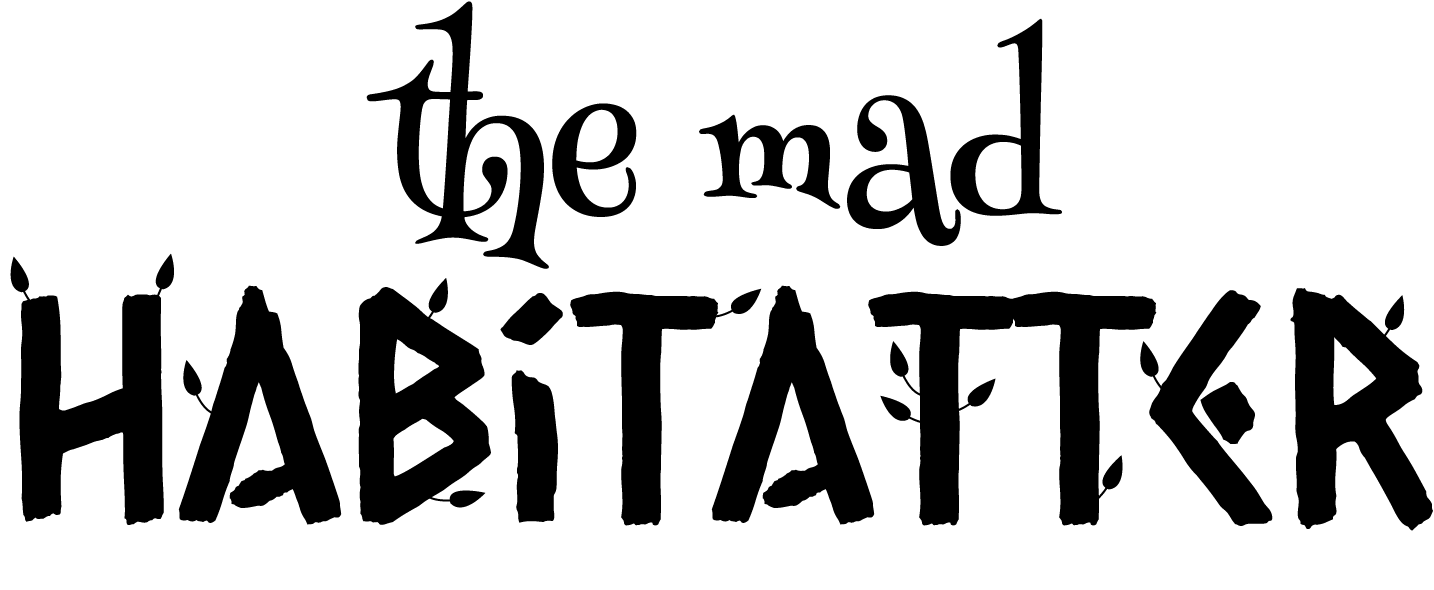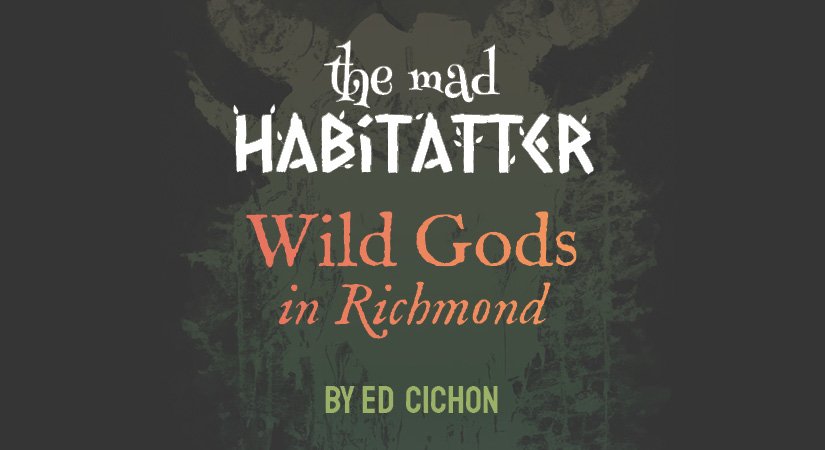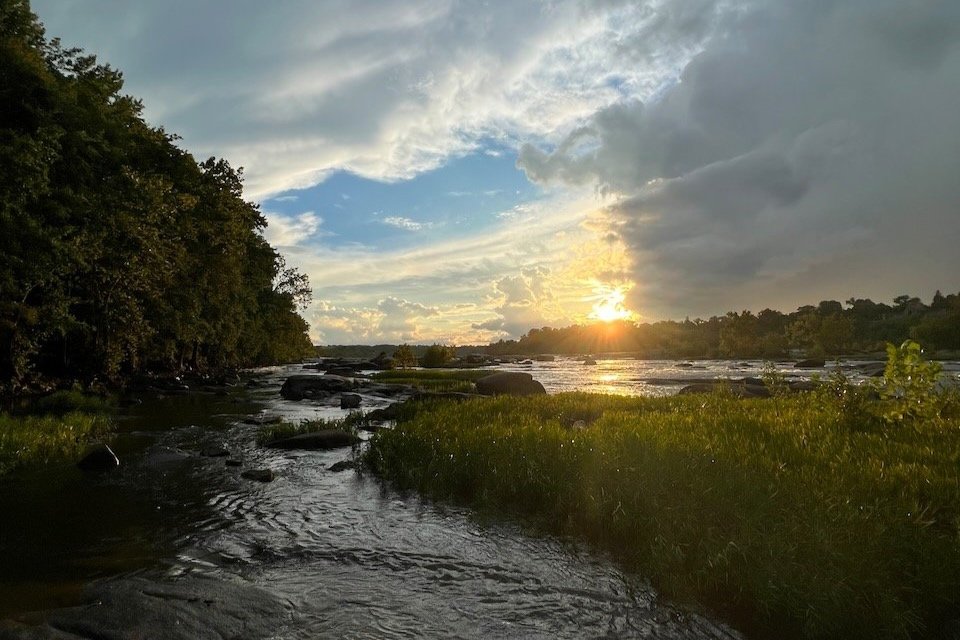Announcing The Mad Habitatter: Wild Gods in Richmond
During my stay in Richmond last year, I went through some truly absurd and utterly bonkers synchronicities. They didn’t stop for weeks, and they were unlike anything I had ever experienced before. Since they were just so ridiculous, I remained tight-lipped about what was going on. In fact, the synchronicities were hard for even me to believe and were even harder to explain when I tried. Once it all wrapped up (ish), I started turning everything into a short novel that chronicled my encounters with the James River, spirits of place, folklore, and myth. That story is called The Mad Habitatter: Wild Gods in Richmond.
The Train Station in Richmond
At the start, I walked down to the James River one warm summer evening with the intent to make contact with some wild gods. At the edge of the river, I spent some time just sinking into the sensations of my hand in the waves and the tricks of light playing in the ripples. Suddenly, a dark dog dashed past me and dove right into the water. I sat transfixed by this dog who just didn’t stop swimming. I’ll never know if she made it all the way across the river, but I’m hoping she did. This completely knocked me out of what I thought was the ritual. Little did I know that dog was the harbinger of a series of events that would weave together underworld myths, local history, Western folklore, and witchcraft. It would completely change my understanding of reality, fiction, spirits, and stories. I’ve been dealing with the fallout ever since.
Notes on Wild Gods
For years, I had “get in contact with the wild ones” as a thing to do on my spiritual to-do list. Richmond finally made it happen. Getting to know the plants and spirits of place around me is a major part of my practice, and I figured it made sense to approach some spirits who have strong ties to “nature.” I was hoping to encounter maybe Dionysus or Sylvanus or Cernunnos. Who actually showed up is…. much more controversial. Because of today’s cultural and religious context, I feel like they need some explanation.
Unexpectedly, Pan, Lucifer, and the Devil became central to The Mad Habitatter: Wild Gods in Richmond. I absolutely wrestled with their arrival, and I deliberately kept them at arm’s length. They are tricksy at best and dangerous at worst. The book is actually an attempt to contain them in my practice in a way that doesn’t completely welcome them into my list of friendlies. They are outside, wild-edged spirits, and that is where they will stay for me. Writing the story forced me to dive deep into their origins, though, and I was surprised with a lot of what I found. Trying to disentangle the Devil, Pan, and Lucifer is quite the task. These beings are very much unsettled. Sure, they have some general patterns, but they are very much not fixed, nor can they ever be. They even started to bleed into other unexpected places. The Devil and Pan are deeply entangled together, for example, and Lucifer is woven into some of the Virgin Mary’s motifs.
This specific group of spirits absolutely has something to teach us, though, and to ignore their messages now would be catastrophic. They’re the spirit of the crossroads, of the edges, and of the wilds, and they’re asking many of us to connect more deeply to the world around us. I’m a big believer in balance, and yet I see us lurching further and further away from the more-than-human world. We’re destroying the Earth to add a few more subdevelopments and VR headsets. Who the actually wants those things? When “nature” and the wilds are literally life-giving, the drive to continue disconnecting ourselves is wreaking havoc on ourselves and the entire planet. Wild gods and myths are practically screaming at us to become better enmeshed in the network of incredible beings around us. Their legends and stories are a wonderful crossroads to encountering "nature" in a slightly less colonized way.
The James River
A Co-Creative Collaboration
I’ve always loved stories that play with pre-existing myths and folktales. Neil Gaiman is a modern master of this (American Gods is great, and the Netflix adaptation of Sandman littered my experience in Richmond with synchronicities). The Master and Margarita by Mikhail Bulgakov and Lamb by Christopher Moore are excellent examples, too. So is God of War on Playstation, oddly enough. Despite being relegated to “myth,” these spirits are not done communicating with us. We are in a co-creative relationship with them. Like us, they’re always in constant flux, despite what our culture would like us to believe.
Gods were never really a major part of my witchiness or occult practices; I’ve been far more interested in plants and the world around me. What I experienced in Richmond changed a lot of my perception on human interaction with what we consider gods — whatever they might be — and how we relate to them. My current perspective is that we don’t bow down; we create with. The Mad Habitatter: Wild Gods in Richmond is my contribution to this never-ending effort.
Speaking of collaboration, if you end up reading the book and enjoying it, please leave a review on Amazon, Goodreads, Apple Books (coming soon!), or wherever. I’m going the self-publishing route which means this is all on me. I have no publisher helping me out. I designed the cover, the layout, wrote the book, and am doing all the marketing. It’s a one-man team here! Well, besides the spirits who helped out with the story in the book itself. But those reviews really do make a difference in getting the word out. And if you have any witchy-ish people in your life who might be interested in the story, feel free to spread the word.
In the meantime, thank you for (hopefully!) reading my little tale of magical realism. Maybe it will bring you some bonkers synchronicities with wild gods of your own.



